Summer means more time outdoors – and that means a greater chance of bug bites.
While most bug bites are harmless, they may sometimes lead to infections, allergic reactions, or illness like Lyme disease, making it essential to identify and treat the bite.
The symptoms you experience can definitely bug you. Learn how to identify common bug bites, prevention tips, and when to see medical care.
6 common summer bugs and their bites
Bug bites can cause illness or require specific treatment. With so many creatures crawling and flying around during summer, how can you tell what bit you? Below is your guide to common summer bugs and what their bites or stings look like:
Mosquitoes
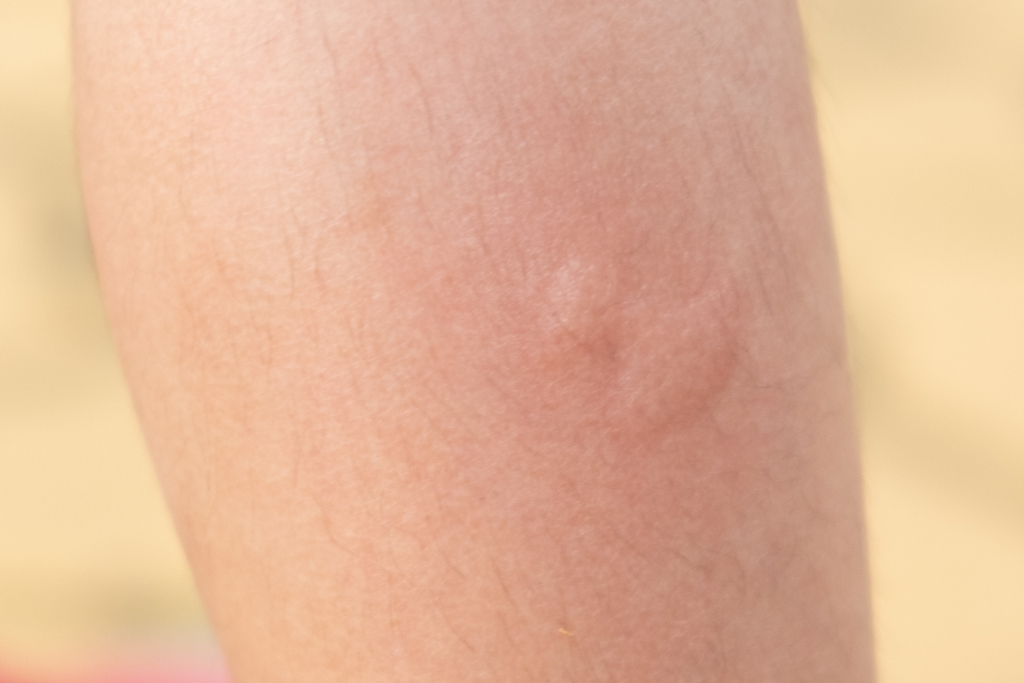
- When mosquitoes bite, it’s usually a quick stinging sensation.
- Bites often result in itchy, round, red bumps or swelling on the surface of your skin.
- Usually found in areas with standing water (such as puddles and ponds), tall grasses, and forests.
- Mosquitoes can carry diseases like Zika virus and West Nile virus.
Ticks
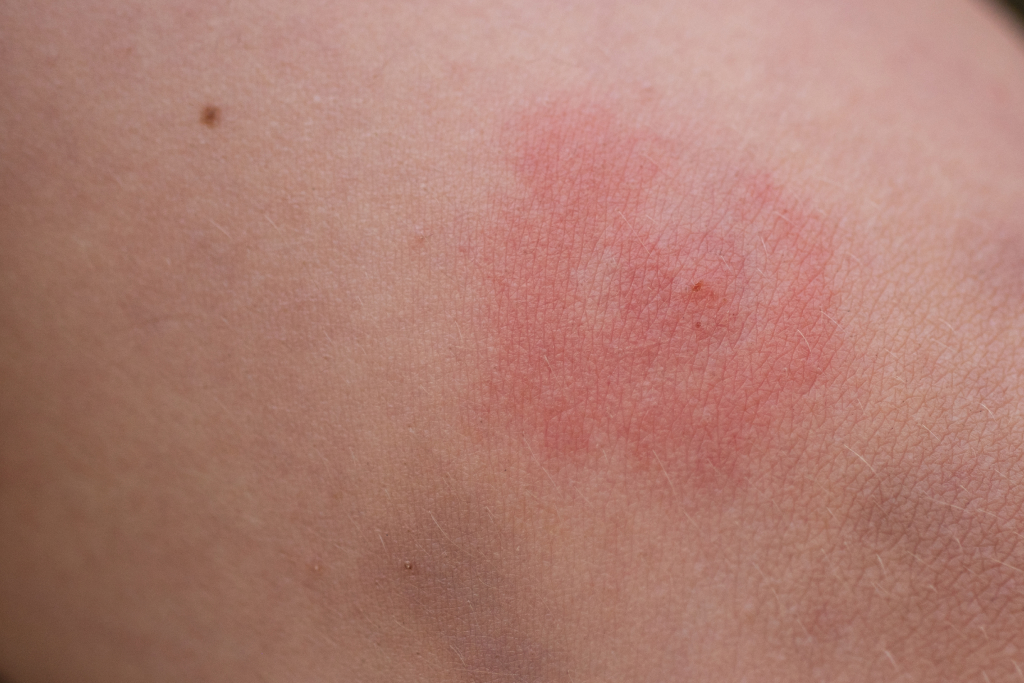
- Tick bites are small and painless because ticks produce saliva with anesthetic properties.
- Many don’t know they are bitten until the telltale sign of a “bullseye” rash – a reddish, circular rash that may appear around the bite.
- To remove a tick, grasp it with tweezers and pull it straight out without squeezing the tick’s body and save the tick for testing if needed.
- Ticks can carry Lyme disease and Rocky Mountain spotted fever.
- Symptoms of these illnesses are rashes, muscle aches, fever or headaches.
- If you are experiencing these after a tick bite or time outside, seek medical attention.
Spiders
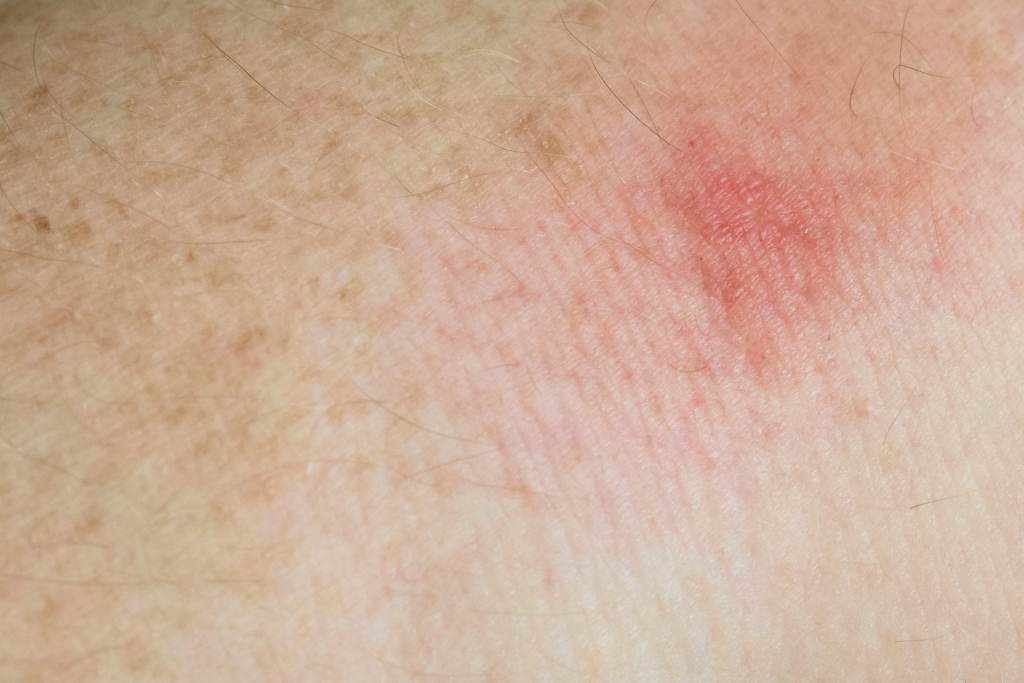
- Most spider bites are not dangerous and typically appear as two raised, itchy “bubbles” (blisters) that are red or clear. Appearance may vary based on the spider that bit you.
- Brown recluse or black widow spider bites require prompt medical care and black widow bites may require antivenom.
- If you experience itching, swelling or signs of infection after a spider bite, develop a “bullseye” rash around the bite, or if an open sore (ulcer) begins to form where the bite occurred, seek medical help.
- Although symptoms may seem serious, they are rarely deadly for healthy adults.
Bees and Wasps
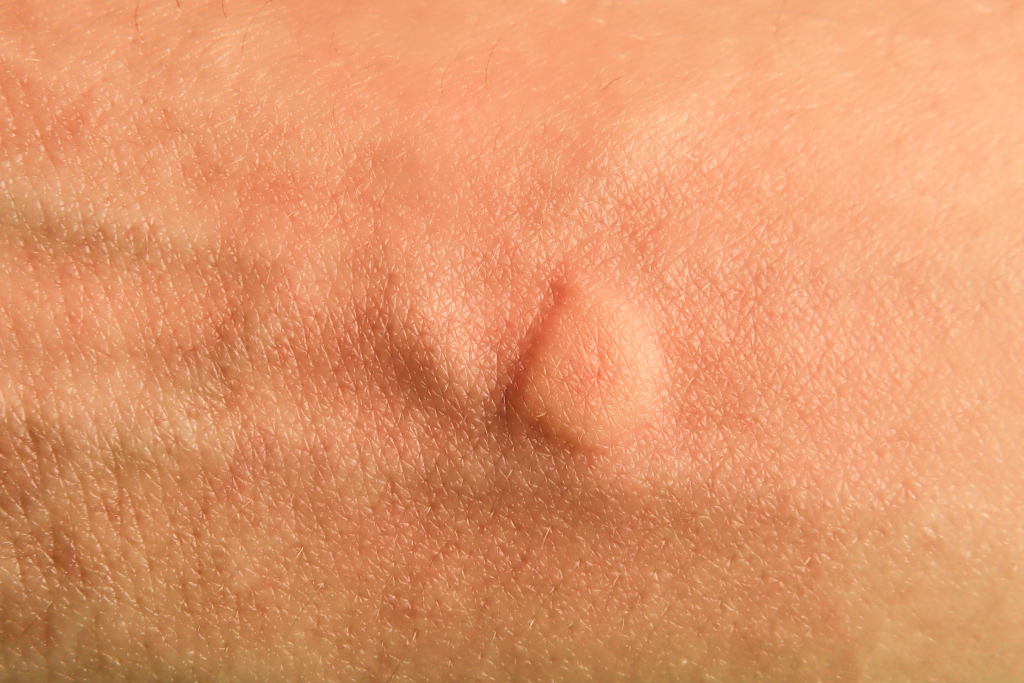
- When stung by a bee or wasp, you will likely feel a sharp pain, followed by a swollen red welt that surrounds the white spot where the stinger entered.
- Stings can be dangerous if you are allergic.
- If a stinger is lodged in your skin, do not try to pull it out, as pulling it out can release more venom. Scrape the stinger out with your fingernail or a flat-edged object (such as a credit card).
Fleas
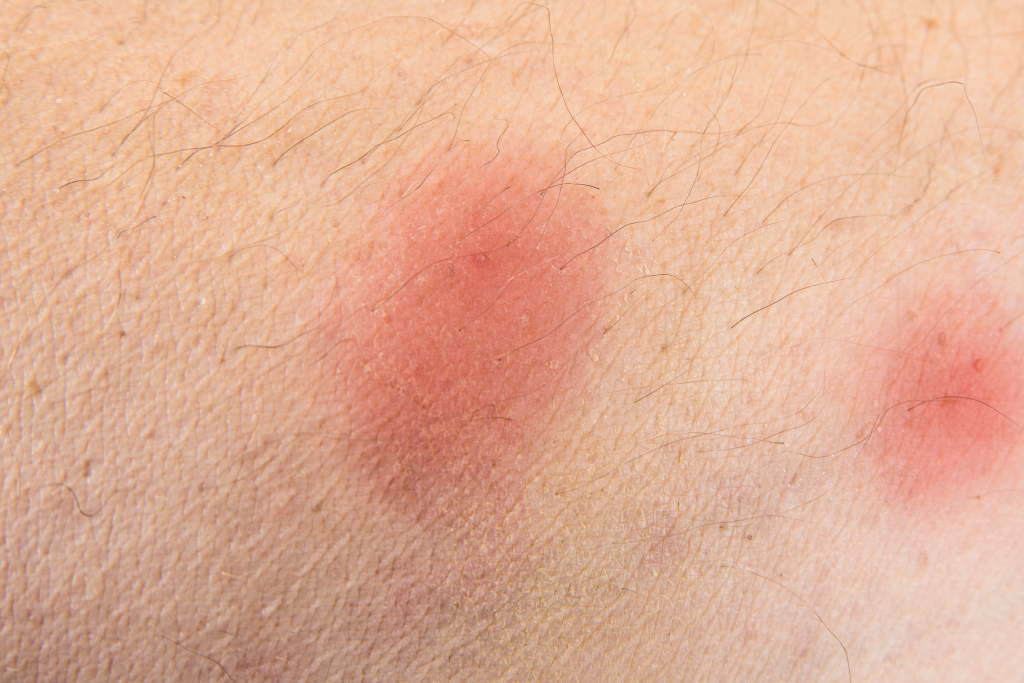
- Flea bites appear in clusters as an itchy rash of tiny bumps that may be painful.
- If you scratch the itchy bites, this may result in a secondary infection.
- Flea bites may also prompt an allergic reaction that can range from mild to severe.
Ants
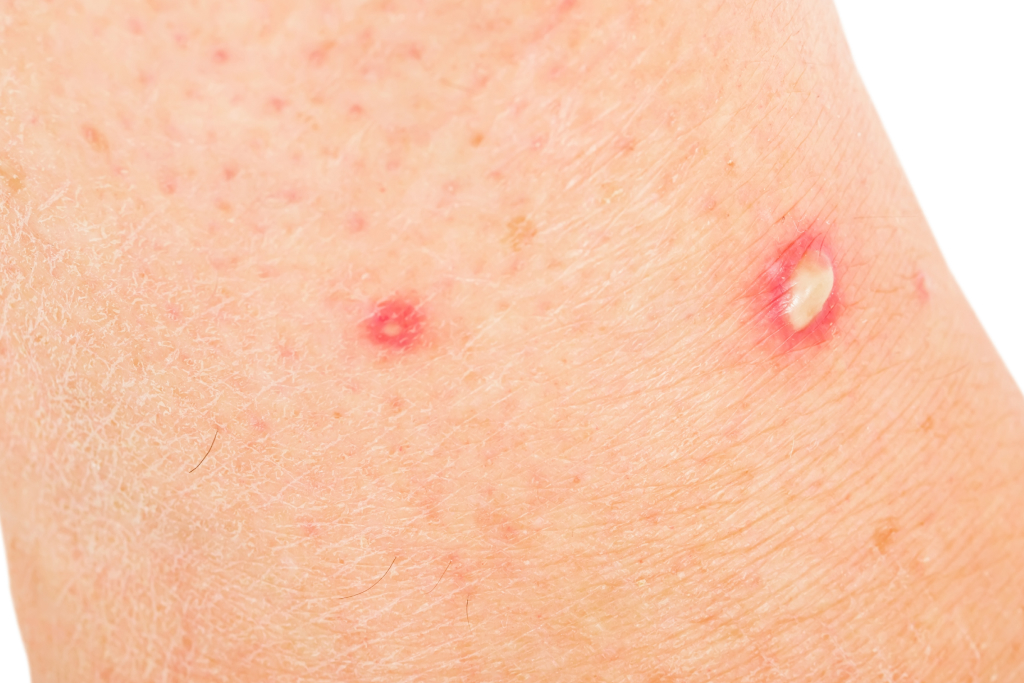
- All ants bite and most bites are painless and harmless.
- Fire ants, sometimes found in Philadelphia, can bite and sting resulting in a painful burning sensation.
- Fire ant bites will usually have a red center and be surrounded by lighter-colored rings.
- Occasionally, fire ant bites can cause blistering or allergic reactions.
How to Avoid Bug Bites
Follow these tips to help avoid bug bites this summer:
- Apply EPA-approved repellents, such as DEET, picaridin, and lemon eucalyptus oil.
- Wear long-sleeved shirts and pants in grassy and wooded areas.
- Inspect your pets for ticks.
- Keep your lawn trimmed and apply pest control products.
- Wash clothes in hot water and dry in hot heat.
- Inspect luggage and clothes upon your return.
When to seek care for a bug bite?
Minor itching, swelling, and discomfort are common after a bug bite. But a bug bite that won’t go away for months or keeps getting worse could be a sign of infection, illness, or something else. Symptoms of bug bites that warrant medical attention include:
- Spreading redness, warmth, or pus
- Fever or flu-like symptoms
- Persistent pain or swelling
- Hives, wheezing, or facial swelling
- Difficulty breathing or swallowing
Most bug bites require minimal treatment to prevent infection and minimize discomfort. Remember to avoid scratching bug bites. It can increase the itch, cause inflammation and may lead to infection. vybe urgent care can evaluate your bug bite and get proper treatment started right away.
Let vybe urgent care help take the sting out of summer bug bites. Walk in or schedule an appointment at your nearest vybe urgent care today!
FIND YOUR VYBE






